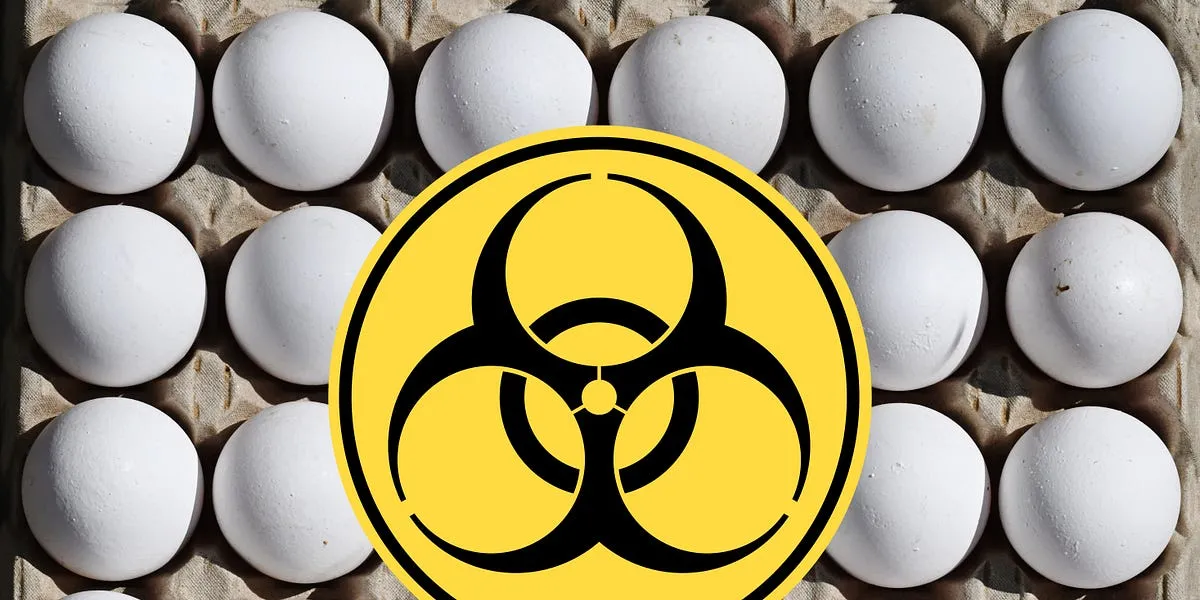
Imagine being handed the ultimate weapon to win a future war and then discarding that weapon. This scenario aptly describes Robert F. Kennedy Jr.'s recent decision to cancel a significant $766 million government contract aimed at developing a new bird flu vaccine. The contract was awarded to Moderna, a renowned biotech company based in Massachusetts, which is also known for creating one of the original COVID-19 vaccines. This contract was part of a special initiative by the Biden administration designed to enhance public health preparedness against future threats.
Moderna sought to leverage its expertise from the COVID-19 pandemic to create a vaccine platform capable of rapidly addressing various strains of influenza, including the H5N1 bird flu. This particular strain has already made its way to the United States, devastating poultry farms across the country. However, infectious disease specialists are not primarily concerned about the economic impact on egg prices; rather, they fear the potential for a strain to mutate, cross species, and infect humans, leading to human-to-human transmission. Historical precedents show that such occurrences have resulted in mortality rates as high as 50% in isolated outbreaks, a stark contrast to the much lower fatality rates associated with COVID-19.
The loss of this contract could have dire implications for public health preparedness. The COVID-19 pandemic resulted in over 7 million global deaths, including more than a million in the United States alone. The rapid development of COVID-19 vaccines, particularly those utilizing mRNA technology like Moderna’s, was instrumental in mitigating this toll. The quick production capabilities of mRNA vaccines are a significant reason why two scientists behind this innovation were awarded the Nobel Prize in Medicine.
Despite this, Kennedy's cancellation of the Moderna contract was justified by an HHS spokesperson as a move focused on “safety, integrity, and trust.” They claimed that mRNA technology is “under-tested,” despite extensive clinical trials and ongoing monitoring of the COVID-19 vaccines for adverse effects. Ashish Jha, Dean of the Brown University School of Public Health, emphasized that around one billion people have received at least one dose of an mRNA vaccine, with only rare reports of serious side effects, calling the under-testing argument “absurd.”
Further supporting the safety of mRNA vaccines, Adam Lauring, chief of infectious diseases at the University of Michigan, noted that these vaccines have been studied more intensively than nearly any other vaccines in history. Meanwhile, Adam Ratner, a pediatric infectious diseases physician, expressed confusion over why Kennedy would halt the development of a vaccine that could effectively counter the spread of bird flu and other infectious diseases. He described the decision as an “unforced error of potentially epic proportions.”
In addition to canceling the Moderna contract, Kennedy also made headlines with a significant shift in the guidelines regarding COVID-19 booster shots. He announced that the CDC would no longer recommend boosters for healthy children and non-elderly adults, including pregnant women. This announcement was made via a brief social media video, a stark contrast to the traditional, methodical approach typically employed by health agencies.
The case for vaccinating pregnant women against COVID-19 is particularly compelling, as studies have linked COVID infections during pregnancy to severe complications, including pre-term births and long-term health issues for the mother. Experts, including Krutika Kuppalli, an infectious disease physician, expressed confusion over the abrupt change in recommendations, particularly given the established benefits of vaccination for pregnant women.
Typically, CDC vaccine guidelines are developed through a rigorous process involving data collection, analysis, and public discussion. However, the recent decision appears to have bypassed these established protocols, leading to significant confusion among healthcare professionals and the public. The lack of clarity surrounding these new recommendations raises concerns about the credibility of the CDC and the potential impact on public trust in vaccination efforts.
The revised booster guidelines may complicate access to vaccinations for those who want or need them, particularly affecting coverage under the Affordable Care Act. With mixed signals coming from the CDC, healthcare providers may struggle to trust the new recommendations, which could lead to uncertainty in patient care and vaccine administration.
As Kennedy's administration continues to send conflicting messages regarding vaccination, the implications for future public health initiatives could be profound. The potential for delayed vaccine development and a decline in support for medical research may leave the U.S. vulnerable during future pandemics, whether from bird flu, COVID-19 variants, or other emerging diseases.
In summary, Robert F. Kennedy Jr.'s recent actions regarding the Moderna bird flu vaccine contract and the new CDC guidelines on COVID-19 boosters have sparked significant concern among public health experts. The decisions not only threaten to undermine vaccine development in the U.S. but also risk diminishing public trust in health authorities at a time when clear communication and effective vaccination strategies are crucial.